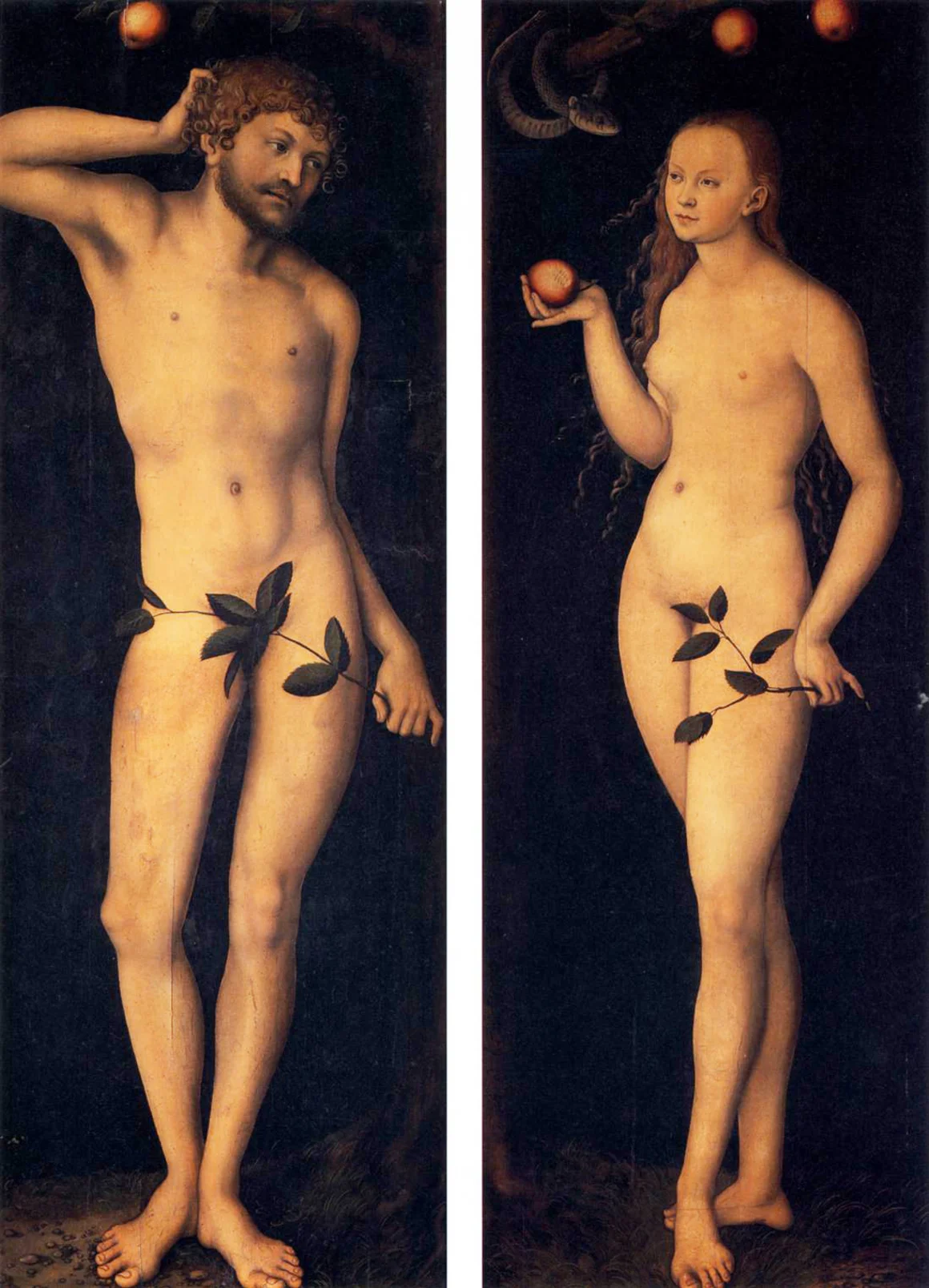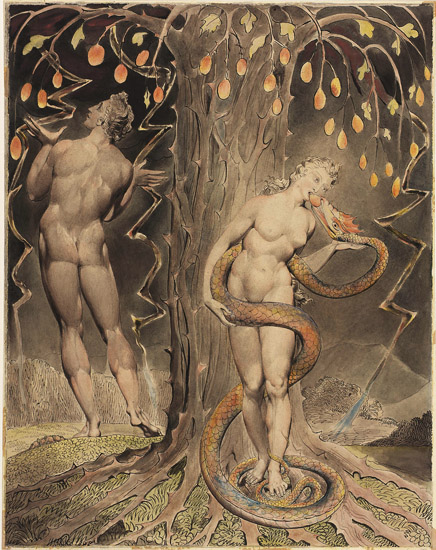
One of the finest acquisitions I have made is an edition by the University of Michigan of the extraordinary Ballads collected by Francis James Child. I was first made aware of the existence of these ballads by the appearance of some of them in Louis Untermeyer's Albatross Book of Verse, which I found perchance in a second-hand library in Buenos Aires, at seventeen years of age, and which was my first awakening to the world of English poetry.
Child's anthology contains poems of great antiquity and beauty, among which Thomas the Rhymer fascinated me the most. The poem, in all its dreamlike strangeness, had one particular characteristic which I found intriguing. It tells that Thomas the Rhymer was forced upon the gift of prophecy—and this very much against his will—by virtue of a mystical apple given to him by the «Queen of Elfland». The gift of prophecy is but the «tongue that can never lie», and the traditional commentary upon the ballad informs that the apple by virtue of which it is acquired is taken from the fatal tree of knowledge. Thus, when the ballad reads that they came on to a garden green, it means the Garden of Eden.
«Why—thought I—does the forbidden fruit, whose flavour is the root of death, corruption and fallenness, endow not falsehood but a truthbound state?». The Bible speaks of the «tree of knowledge of good and evil»,
But of the tree of the knowledge of good and evil, thou shalt not eat of it: for in the day that thou eatest thereof thou shalt surely die. —Genesis 2:9 (KJV)
and thus it is unsurprising that its fruit should bestow some form of illumination. But why should it be the source of truthfulness?
Classical commentary on the book of Genesis is not illuminating on this point. For instance, Philo of Alexandria, in Quaestiones et solutiones in Genesim, speaks thus on question 20:
Why does (God) say, when He commands (Adam) to eat of every tree which is in Paradise, ‘“‘Eat” in the singular number; but, when He forbids eating of the tree which gives knowledge of good and evil, says, in the plural number, ‘“‘Do not eat, for on the day when ye shall eat, ye shall die”?
First, because though it extends over many things, the good is one, and not less for this reason, namely that He who gave the benefit is one, as is also the one who received the benefit. This ‘‘one’’ I speak of, not with reference to the number which precedes the number two, but with reference to the unitary power, in accordance with which many things are harmonized and agree and by their concord imitate the one, such as a flock, a herd, a drove, a chorus, an army, a nation, a tribe, a household, a city. For all these, extending over many, are one community and embrace lovingly ; but when they are unmixed and have nothing in common, they fall into duality and into a multitude and are divided. For duality is the beginning of division. But two who use the same philosophy as one enjoy an unadulterated and clear virtue which is free of evil. But when good and evil are mixed, they have as their beginning a mixture of death.
Then, in question 40, he speaks of the discrimination brought upon by the forbidden fruit as follows:
What is the meaning of the words, “‘For they knew that they were naked”’?
It was of this, that is, of their own nakedness, that they first received knowledge by eating of the forbidden fruit. And this was opinion and the beginning of evil, for they had not used any covering, inasmuch as the parts of the universe 'are immortal and incorruptible'; but (now) they needed that which is made by hand and corruptible. And this knowledge was in being naked, not that it was in itself the cause of change, but that now a strangeness was conceived by the mind toward the whole world.
Origen of Alexandria, in his Homilies on Genesis, though extensively covering the image of the fruit of the land in his characteristic allegorical manner, speaks not once of the forbidden fruit nor of Eve's transgression.
John Chrysostom, on his 16th homily on Genesis, speaks briefly in terms closer to our question when pointing out that Adam had already been granted the gift of prophecy when he was created, along with absolute intelligence and knowledge. However, he concludes from this that it is absurd that the fruit should bestow any form of illumination. Rather, he says:
But behold, they say, it was Scripture that called it the tree of the knowledge of good and evil. I know that, too: but if you are prepared to learn the characteristics of Sacred Scripture, you will know why it gave this name to the tree. You see, it wasn’t because it supplied knowledge that it is called that, but because (133a) the transgression of the command happened to concern the tree, and from that event knowledge of sin then entered the scene, and shame as well—that was why the name was given. It is, after all, the way with Sacred Scripture to name places from the things that happen, wherever it is they happen. So on this basis Sacred Scripture also named the tree of the knowledge of good and evil since transgression and observance of the command concerned the tree.
I found this explanation unsatisfactory and dogmatic. Far more interesting is the interpretation of Gregory Nazianzen, in the 45th oration of his Orationes, when he writes:
This latter was the Tree of Knowledge; not, however, because it was evil from the beginning when planted; nor was it forbidden because God grudged it to men — let not the enemies of God wag their tongues in that direction, or imitate the serpent. But it would have been good if partaken of at the proper time; for the Tree was, according to my theory, Contemplation, which it is only safe for those who have reached maturity of habit to enter upon; but which is not good for those who are still somewhat simple and greedy; just as neither is solid food good for those who are yet tender and have need of milk.
To him the fruit does grant illumination, but one of which man must partake only at the proper time, lest it may corrupt him. Gregory of Nyssa partly agrees when he writes, in his work On the making of man:
It speaks of the fruit of the forbidden tree not as a thing absolutely evil (because it is decked with good), nor as a thing purely good (because evil is latent in it) ...
However, the depiction closest to that of the ballad is Milton's, according to whom the Serpent spoke thus to Eve of the tree of science:
O Sacred, Wise, and Wisdom-giving Plant,
Mother of Science, Now I feel thy Power
Within me cleere, not onely to discerne
Things in thir Causes, but to trace the wayes
Of highest Agents, deemd however wise.
Queen of this Universe, doe not believe
Those rigid threats of Death; ye shall not Die:
How should ye? by the Fruit? it gives you Life
To Knowledge, By the Threatner? look on mee,
Mee who have touch'd and tasted, yet both live,
And life more perfet have attaind then Fate
Meant mee, by ventring higher then my Lot.
Not much later, Eve declares that the fruit gives «elocution to the mute, and taught The Tongue not made for Speech to speak thy praise», and eating of it wishes to «grow mature in knowledge, as the Gods who all things know».

Does Eve's hubris contain the secret meaning of the ballad? Is the knowledge which the fruit bestows so rich that it equates to that of the Gods who all things know? And is this what Thomas was granted in his own incursion into the Garden of Eden?
Another interpretation is possible, one more suited to explain the inability to lie. It is conceivable that the fruit does not so much bestow knowledge as it incarnates at least some aspect of the divine essence. If Thomas cannot lie, it means one of two things: either he cannot speak what will not occur, or he can freely speak, thus mastering faith. Perhaps, then, the power of the fruit would be that of infusing into common language the creative power of the λόγος. To lie becomes a metaphysical impossibility, for language is no longer a representational faculty, but an ontological one. Adam and Eve's transgression would not be then that of acquiring knowledge, but that of stepping into the creative prerogative of the Word.
In support of this interpretation, we have Saint Augustine's words in De Mendacio, when he comments on the following judgment:
The son that receives the word is far from perdition; receiving it, he receives it for himself and nothing false comes out of his mouth.
and identifies truth with God himself. Also, in the Gnostic tradition, at least as presented in The Secret Book of John, it is Jesus himself who coaxes Eve to eat of the tree of knowledge, and he also calls the tree «Epinoia (ἐπίνοια) of light».